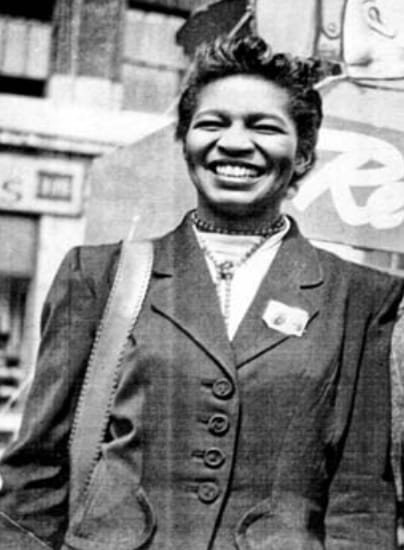Black British History Contributions Beyond Slavery

By Eden Folkes, MA Migration and Diaspora Studies
“In October the only options are discussions on black trauma and suffrage.”
Every year it’s the same story, ‘Let’s talk about Black history’ which has almost become synonymous with ‘Let’s talk about slavery.’ The options in October for students across the nation during history lessons are discussions and PowerPoints about Black trauma and suffrage.
Introduced by Akyaba Addai Sebo in 1987 and inspired by African American Carter G. Woodson who created Negro History Week; every October, we Britons are given a chance to celebrate, share, and understand the impact of Black heritage in the UK and across the globe. However, in recent years, the British school curriculum has been under scrutiny for its portrayal of history, particularly in the context of slavery and abolition. The Black Curriculum 2021 Report states that the current curriculum ‘systemically omits’ Black history and takes a ‘White, Eurocentric stance.’ While it’s crucial to educate students about the dark period of history, the focus on these aspects has started to overshadow the positive contributions made by Black British individuals in various fields.
Education plays a vital ro in shaping societal perspective and understanding. To ensure a well-rounded and inclusive education, it is essential to balance between educating on the history of slavery and abolition, as it was a turning point in history. Acknowledging, studying, and understanding the struggles that led to abolition is essential for developing empathy and promoting a just and equitable society. Yet, simultaneously, we should be celebrating the remarkable achievements of Black British people and those of the African diaspora to society, and their contributions to the arts, sciences, and politics, and supporting the welfare system.
The contributions of Black British and African-American scholars and inventors are extensive. For instance, Evelyn Dove, the first black singer on BBC radio, broke cultural barriers and opened doors for the likes of Little Simz, Raye, and Mahalia. Claudia Jones is not only the founder of Europe’s biggest street festival Notting Hill Carnival, but also an activist and the founder of Britain’s first major Black newspaper, The West Indian Gazette. Then there’s John Edmonstone, the man who taught Charles Darwin the skill of taxidermy, the same skill Darwin used to preserve birds that were the foundation of his ideas about evolution. Incorporating these narratives into the curriculum can cultivate a deeper appreciation for the diverse contributions that have shaped modern Britain.
The racial bias in the British curriculum is particularly concerning given the current social-political context where racial tensions and discrimination are still prevalent. For instance, within the Metropolitan Police, the stop and search rate per 1,000 people for Black individuals stands at a staggering 167.2%, compared to Asian (34.1%) and White (37.4%) individuals, according to the Home Office. The NHS suffers from an increased maternal mortality rate for Black women, and London, a multicultural epicentre, has many boroughs entering a period of gentrification. This has resulted in an increase in the displacement of original businesses that were vital to many ethnic households, and families being forcibly displaced into cheaper more deprived areas resulting in the breakup of communities.
To address the concerns regarding the curriculum’s current imbalance, activists, educators, and policymakers should consider revising the curriculum – acknowledging reports like The Black Curriculum report and social phenomena like gentrification to ensure a comprehensive and inclusive view of history and its impact on society today. This includes attention to the abolition movement, civil rights, and the contribution of all Black people in all aspects of life.
The British school curriculum holds immense potential to impart knowledge and shape perspectives. By striking a balance between educating about the history of slavery and abolition while celebrating the contributions of black British individuals, we can create an education system that fosters inclusivity, empathy, and a deep appreciation for the diversity that defines our society. Education should empower students to stand against discrimination and work towards a future where everyone is celebrated for their unique contributions, regardless of their background. By acknowledging and celebrating the contributions of Black Britons and members of the African diaspora, we can create a more inclusive society that values diversity and promotes social justice.
Claudia Jones (Credit: Wikipedia)




